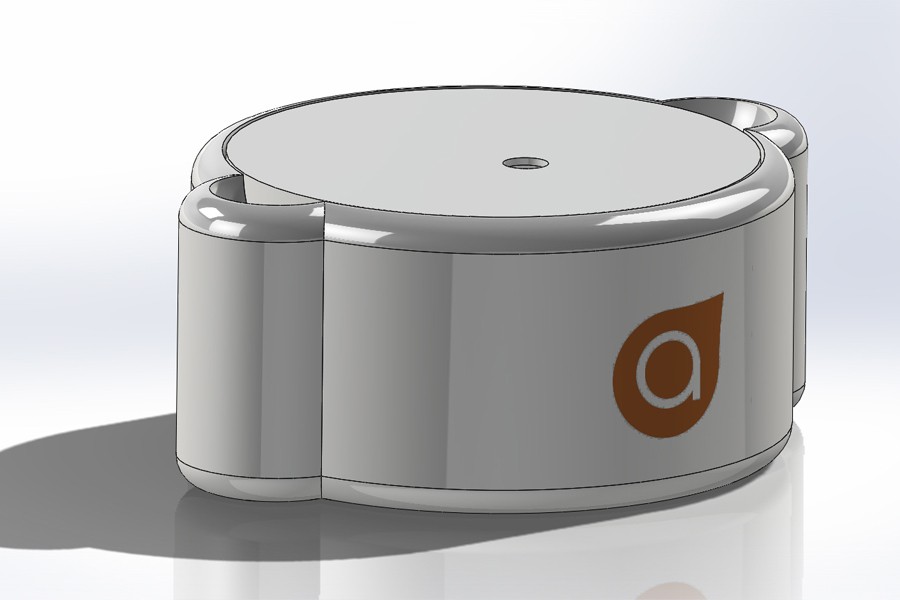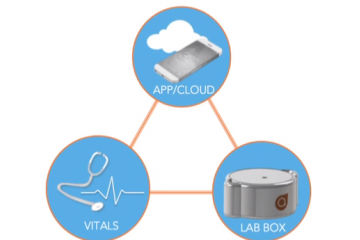Last year, 15 Johns Hopkins undergraduates got together to form Aezon, a collection of student engineers with "a new perspective on health."
The students have their eyes on the prestigious Qualcomm Tricorder XPRIZE (and the whopping $10 million prize that comes with it).
The challenge is simple: Design an awesome gadget for self-diagnosis—something a bit more accurate than Googling a list of symptoms.
It's no secret the healthcare industry is evolving, and the landscape is currently fertile for key innovators to change the game. What the Hopkins students at Aezon have created is a mobile device they say can diagnose 15 different health conditions—including strep throat, pneumonia, mononucleosis, urinary tract infections, and even HIV—based on your vital signs and other data.
"We've developed a consumer friendly device that can continuously monitor your vitals, like pulse, oxygen saturation, core temperature," says sophomore Neil Rens, one of the Aezon team members.
Sounds awesome, right? But how exactly does it work?
There are a couple of components to Aezon's system. The first is what they call a lab box, a portable device that is capable of reading disposable test cartridges.
The second is a Vitals Monitoring Unit, a lightweight piece of wearable technology that fits gently around your neck. The students heading up the neck piece have spun off their own sister company, called Aegle, which is part of the first class of the DreamIt Health Baltimore health IT accelerator.
The information that the monitoring unit and lab box collect are then passed on to the third component to Aezon's system, a smartphone app. According to Aezon's website, the app "accumulates and analyzes all of the data from the vitals monitoring unit and the lab box, offering patients a seamless way to track their health. After evaluating system input and vitals data with cutting-edge algorithms, the app directs users toward relevant tests. Within minutes, patients know their test results and are advised on how to proceed with this health information."
As some Trekkies might suspect, the Qualcomm competition is inspired by the fictional tricorder from the Star Trek franchise, a hand-held device used for scanning, data analysis, and data recording. The $10 million prize is offered in hopes of making that fantasy prop into a reality, putting health monitoring and diagnosis in the palm of your hand.
Aezon has made it through the preliminary round of the Qualcomm competition. Now it faces off against 29 others teams of innovators from around the world, many of which are more experienced and better funded. The deadline for submissions is in May.
As a team of college students, Aezon stands out from their competitors.
"That's pretty unique," Rens says. "Everyone else in the competition are start-up companies. We're all undergrads, and very interdisciplinary."
Aezon has developed a prototype using a 3D printer on campus, but they have a $10,000 funding goal so they can purchase needed supplies, build a better prototype, and conduct usability testing. Last week, Indiegogo started featuring Aezon on its home page, and that's helped their fundraising efforts, Rens says. They are currently about a third of the way to their goal.
You can support Aezon's project at indiegogo.com.
Posted in Science+Technology, Student Life
Tagged biomedical engineering, undergraduate research, bioengineering









